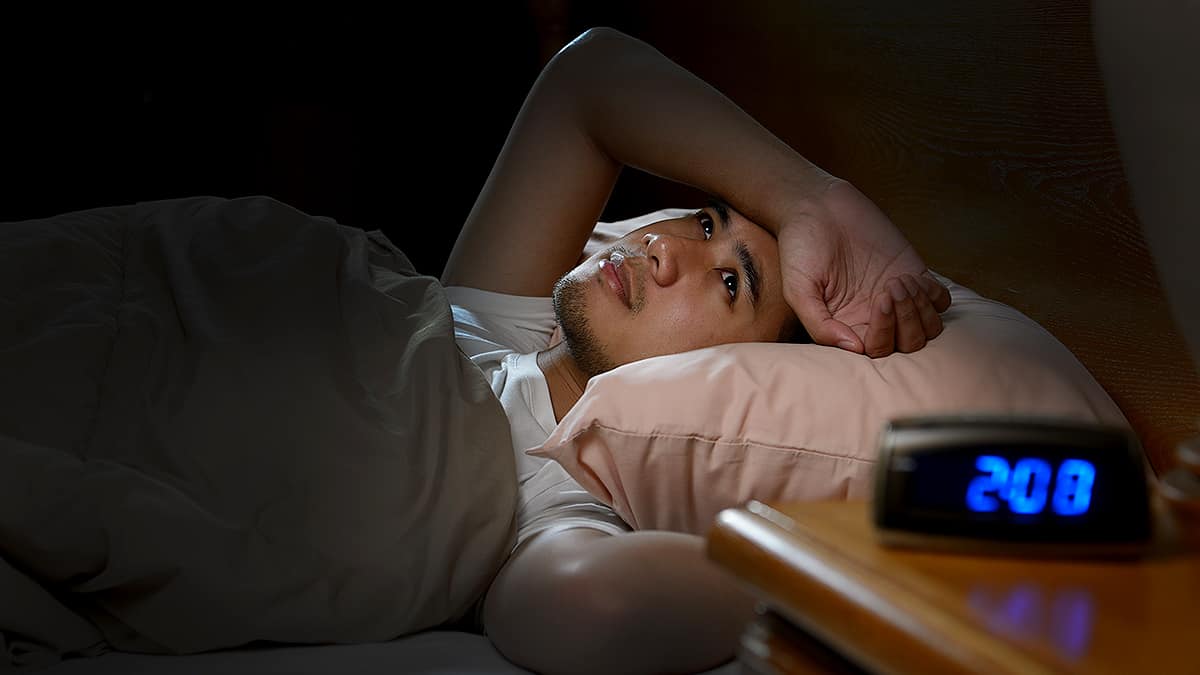Many people struggle with anxiety and how to manage stress in a healthy way. Unfortunately, mental health concerns have worsened for many people since COVID-19 has caused significant disruptions in peoples’ lives. While benzodiazepines work well for some people in certain situations, they are not a good fit for many— and for many reasons. In particular, benzodiazepines are only meant for short-term use and are not a good solution for people who need long-term help with anxiety.
Are benzodiazepines meant for anxiety?
Benzodiazepines are a type of prescription medication that may be prescribed for health problems such as anxiety and insomnia. Drugs in this category slow down processes within the brain and body.
Examples of benzodiazepines include:
- Alprazolam (brand name Xanax)
- Chlordiazepoxide (Librium)
- Clonazepam (Klonopin)
- Diazepam (Valium)
- Lorazepam (Ativan)
- Temazepam (Restoril)
Benzodiazepines work by modifying a person’s brain chemistry. Gamma amino butyric acid (GABA) is a molecule in the brain that slows or stops brain signals. Benzodiazepines enhance the effect of GABA and create a drop in brain activity. This can lead to not only a calming effect on the mind, but also a slowing down of other processes within the body.
Benzodiazepine Uses
Anxiety disorders are the most common mental health disorders. Nearly one-third of U.S. adults have anxiety at some point in their lives. Benzodiazepines are sometimes prescribed to people for different types of anxiety including generalized anxiety disorder, social anxiety disorder, and panic disorder. However, scientific research has demonstrated that this class of drugs is only effective for short periods of time – less than four weeks – and when other types of anxiety treatments have failed. People who are looking for more long-term strategies to fight anxiety often have better luck with other medications or treatment plans. In fact, when used long-term, benzodiazepines can actually increase anxiety.Additionally, benzodiazepines don’t necessarily help with every type of anxiety. For example, they do not help people with post-traumatic stress disorder (PTSD), a type of anxiety disorder that can develop after someone experiences a terrifying event or situation.Benzodiazepines may also be prescribed for insomnia. Again, however, our evidence thus far shows that they likely only help with short-term use. Although benzodiazepines can make you feel tired, they also can lead to a worse night’s sleep. These drugs often make it easier to fall asleep, but they tend to also make it harder for people to enter into stages of deeper sleep.Benzodiazepines may also be prescribed for other purposes, such as:
muscle relaxation, treatment of seizures, calming people before a medical procedure or surgery, and treatment of alcohol withdrawal.
Benzodiazepine Risk and Potential Side Effects
Because benzodiazepines slow down the brain and nervous system, they can have certain negative side effects on the body that include:
- Sleepiness or fatigue
- Slower reflexes
- Lack of motor coordination
- Muscle pain or spasms
- Dizziness
- Blurry vision
- Slurred speech
- Nausea or vomiting
- Sexual dysfunction
Benzodiazepines may also come with negative side effects related to mood or brain function. People who take these drugs can experience:
- Restlessness
- Confused thinking
- Disconnection from their surroundings
- Irritability
- Acting hostile or aggressive
- Mood swings
- Hallucinations
- Paranoia
- Disturbing dreams
Many people struggle with anxiety and how to manage stress in a healthy way. Unfortunately, mental health concerns have worsened for many people since COVID-19 has caused significant disruptions in peoples’ lives. While benzodiazepines work well for some people in certain situations, they are not a good fit for many— and for many reasons. In particular, benzodiazepines are only meant for short-term use and are not a good solution for people who need long-term help with anxiety.
Are benzodiazepines meant for anxiety?
Benzodiazepines are a type of prescription medication that may be prescribed for health problems such as anxiety and insomnia. Drugs in this category slow down processes within the brain and body.
Examples of benzodiazepines include:
- Alprazolam (brand name Xanax)
- Chlordiazepoxide (Librium)
- Clonazepam (Klonopin)
- Diazepam (Valium)
- Lorazepam (Ativan)
- Temazepam (Restoril)
Benzodiazepines work by modifying a person’s brain chemistry. Gamma amino butyric acid (GABA) is a molecule in the brain that slows or stops brain signals. Benzodiazepines enhance the effect of GABA and create a drop in brain activity. This can lead to not only a calming effect on the mind, but also a slowing down of other processes within the body.
Benzodiazepine Uses
Anxiety disorders are the most common mental health disorders. Nearly one-third of U.S. adults have anxiety at some point in their lives. Benzodiazepines are sometimes prescribed to people for different types of anxiety including generalized anxiety disorder, social anxiety disorder, and panic disorder. However, scientific research has demonstrated that this class of drugs is only effective for short periods of time – less than four weeks – and when other types of anxiety treatments have failed. People who are looking for more long-term strategies to fight anxiety often have better luck with other medications or treatment plans. In fact, when used long-term, benzodiazepines can actually increase anxiety.Additionally, benzodiazepines don’t necessarily help with every type of anxiety. For example, they do not help people with post-traumatic stress disorder (PTSD), a type of anxiety disorder that can develop after someone experiences a terrifying event or situation.Benzodiazepines may also be prescribed for insomnia. Again, however, our evidence thus far shows that they likely only help with short-term use. Although benzodiazepines can make you feel tired, they also can lead to a worse night’s sleep. These drugs often make it easier to fall asleep, but they tend to also make it harder for people to enter into stages of deeper sleep.Benzodiazepines may also be prescribed for other purposes, such as:
muscle relaxation, treatment of seizures, calming people before a medical procedure or surgery, and treatment of alcohol withdrawal.
Benzodiazepine Risk and Potential Side Effects
Because benzodiazepines slow down the brain and nervous system, they can have certain negative side effects on the body that include:
- Sleepiness or fatigue
- Slower reflexes
- Lack of motor coordination
- Muscle pain or spasms
- Dizziness
- Blurry vision
- Slurred speech
- Nausea or vomiting
- Sexual dysfunction
Benzodiazepines may also come with negative side effects related to mood or brain function. People who take these drugs can experience:
- Restlessness
- Confused thinking
- Disconnection from their surroundings
- Irritability
- Acting hostile or aggressive
- Mood swings
- Hallucinations
- Paranoia
- Disturbing dreams
These side effects may get worse the longer you take these medications. Some types of benzodiazepines take a while to be cleared from your body, so the side effects can build up and become more severe over time. Someone who regularly takes these drugs over a long period may be more likely to experience side effects like confusion or difficulties with thinking and processing.
Benzodiazepines can make certain mental health issues worse. They can cause people to start feeling depressed, or make depression more severe. Long-term use of these medications has also been linked to brain function issues. People who use benzodiazepines can have problems with processing information, learning, and focusing, and may be more likely to develop dementia or lose cognitive function in the long run.
Certain groups of people should avoid this class of drugs. People who are pregnant or may become pregnant shouldn’t take benzodiazepines because they can lead to birth defects. Additionally, these medications may not be a good fit for elderly populations because they can increase a person’s risk of a fall. Older people are more likely to experience benzodiazepine side effects because the kidney has a harder time clearing out drugs from a person’s system as they age.
Benzodiazepine Dependency
Benzodiazepines can lead to tolerance, dependence, and addiction for some people. These terms are related, but they are not the same. Tolerance occurs when a person’s body becomes used to the presence of a drug, and the usual dose doesn’t have the same effect it once did. This often leads to someone feeling like they need to take higher doses. Dependence on a drug means that a person will experience withdrawal symptoms once they stop using it. Addiction is a disease in which a person no longer has control over their use of a substance and is not able to stop taking it, even if they want to.
When people use benzodiazepines long-term, they often build up tolerance. In this situation, future doses of benzodiazepine medications do not work as well. This may lead people to have an even harder time coping with stress than they did before. People may also need to take more of the medication in order to feel the same effect, which may lead to worse side effects.
People can also become dependent on benzodiazepines. Studies have estimated that anywhere from 58-100% of people who use these drugs long-term become dependent on them. When people become physically dependent on benzodiazepines and then try to stop using them, they may experience withdrawal. People are more likely to go through withdrawal if they’ve used benzodiazepines for a long time or taken them in high doses. People who go through withdrawal may have trouble sleeping, increased anxiety, muscle tremors, and seizures.
Benzodiazepine dependence is more likely to happen when these medications are used illicitly along with other drugs. However, it is still important to understand that this risk is a possibility, especially for people who use benzodiazepines long-term or people who have a family history of of substance abuse. In order to reduce your risk of dependency and take benzodiazepines safely, I suggest the following strategies:
- Don’t take benzodiazepines unless they’ve been prescribed to you
- Take your medication exactly as prescribed – don’t take benzodiazepines more often or in higher doses than your doctor has recommended
- Don’t rely on these drugs for long-term treatment
- Drink alcohol only moderation, or not at all, while taking benzodiazepines
- Don’t take benzodiazepines if you have a history of drug or alcohol dependence
When people become tolerant to or dependent on the effects of benzodiazepines, they may start taking higher doses. This can lead to overdose which may cause breathing problems, a drop in blood pressure, and possibly death. However, benzodiazepine overdose typically doesn’t happen unless these drugs are combined with other substances, such as alcohol or opiates.
Drug Interactions
Benzodiazepines can have dangerous effects when combined with other substances. For example, certain medications can raise the levels of benzodiazepines in the body. These include certain antibiotics like chloramphenicol, antiretrovirals like ritonavir, and even grapefruit juice. Taking benzodiazepines with these other substances may lead to stronger effects.
Because benzodiazepines can slow down processes in the body, they shouldn’t be combined with other substances that have this same slowing effect. This includes alcohol, opioids, melatonin, and marijuana. Using these substances with benzodiazepines can cause someone’s lungs and heart to slow down so much that they are at risk of serious health problems and even death.
Benzodiazepines are especially dangerous when combined with opioids, and are involved in over 30% of opioid overdoses. This may be an issue for people who have been prescribed opioid painkillers, are using opioids illicitly, or are taking cold and cough medications that contain opioids, including codeine and hydrocodone. People can die from combining benzodiazepines with opioids or with alcohol.
Make sure to let your doctor know every medication that you are taking in order to reduce your risk of harmful drug interactions.
Benzodiazepine Alternatives
Behavioral Therapy
Experts recommend therapy, medication, or both when it comes to successfully treating anxiety. The most common type of therapy for anxiety is called cognitive behavioral therapy (CBT). During a CBT session, a counselor or psychologist will help a person examine their underlying beliefs and feelings and adjust them in order to encourage healthier thought patterns. For example, someone with anxiety may only notice the negative elements surrounding a certain event, and fail to recognize the positives. CBT can help a person use more balanced thinking. This type of therapy can help a person build new skills to better deal with their anxiety.
Therapists may use other strategies to help treat anxiety as well. For example, exposure therapy is a type of CBT that can help people with different kinds of anxiety. The theory behind this treatment is that facing your fears helps you become less afraid of them. For example, therapists may ask you to talk through a specific situation that triggers your anxiety. Other types of therapy such as eye movement desensitization and reprocessing (EMDR) may also help to lessen anxiety. Talk to your physician, or a licensed counselor or psychologist, to learn more about therapy options that could help you.
Non-Benzodiazepine Medications
Experts generally say that SSRIs should be the first drugs that people try to help manage anxiety. SSRIs, or serotonin and norepinephrine re-uptake inhibitors, are typically classified as antidepressants but also work well for other mental health problems. SSRIs and other drugs that affect serotonin brain pathways often take longer to start producing an effect, but they are known to work better, have fewer side effects, and are less likely to cause dependence. Other types of antidepressants, as well as drugs that affect the way the body uses calcium, may also be effective for anxiety. If you’re feeling more stressed than usual or having trouble dealing with anxiety, talk to your doctor about which medications may be a good fit for you.
Other Strategies
Both exercise and relaxation can help reduce anxiety symptoms. In particular, physical activity and relaxation can work well alongside these other treatments as part of a comprehensive anxiety management plan. Relaxation techniques include meditation, yoga, and self-hypnosis.
Anxiety and COVID-19
If you’ve been struggling with anxiety and stress more than usual within the past several months, know that you’re not alone. Many people are reporting high levels of anxiety and panic in the wake of life disruptions during the COVID-19 pandemic. Worrying about health and finances, experiencing changes in appetite or sleep, having trouble focusing, using substances like drugs or alcohol, and having problems with physical and mental health are common health concerns that I speak with patients about every day in my own practice. Possible ways to help manage increased anxiety include taking a break from the news or social media, trying to eat healthy foods, getting more exercise, finding ways to connect with people online or in-person in safe ways, and dedicating time to winding down and relaxing. Make sure to talk to your doctor about any concerns you have about your mental health. Trying out therapy or medication may help you cope with these unusual times.
Conclusions
Research does demonstrate that drugs such as SSRIs and psychotherapy such as CBT are the best first options for treating anxiety. These types of treatments will work well for most people, but not everyone. If you have tried other options and are still struggling with severe anxiety, your doctor may prescribe a benzodiazepine. If so, it is important to take your medication exactly as prescribed in order to reduce your chances of becoming dependent on or tolerant of benzodiazepines. Talk to your doctor if you start experiencing side effects or have concerns. Finally, ask your healthcare provider what other treatments may help you reduce stress and improve your mental health.
These side effects may get worse the longer you take these medications. Some types of benzodiazepines take a while to be cleared from your body, so the side effects can build up and become more severe over time. Someone who regularly takes these drugs over a long period may be more likely to experience side effects like confusion or difficulties with thinking and processing.
Benzodiazepines can make certain mental health issues worse. They can cause people to start feeling depressed, or make depression more severe. Long-term use of these medications has also been linked to brain function issues. People who use benzodiazepines can have problems with processing information, learning, and focusing, and may be more likely to develop dementia or lose cognitive function in the long run.
Certain groups of people should avoid this class of drugs. People who are pregnant or may become pregnant shouldn’t take benzodiazepines because they can lead to birth defects. Additionally, these medications may not be a good fit for elderly populations because they can increase a person’s risk of a fall. Older people are more likely to experience benzodiazepine side effects because the kidney has a harder time clearing out drugs from a person’s system as they age.






















